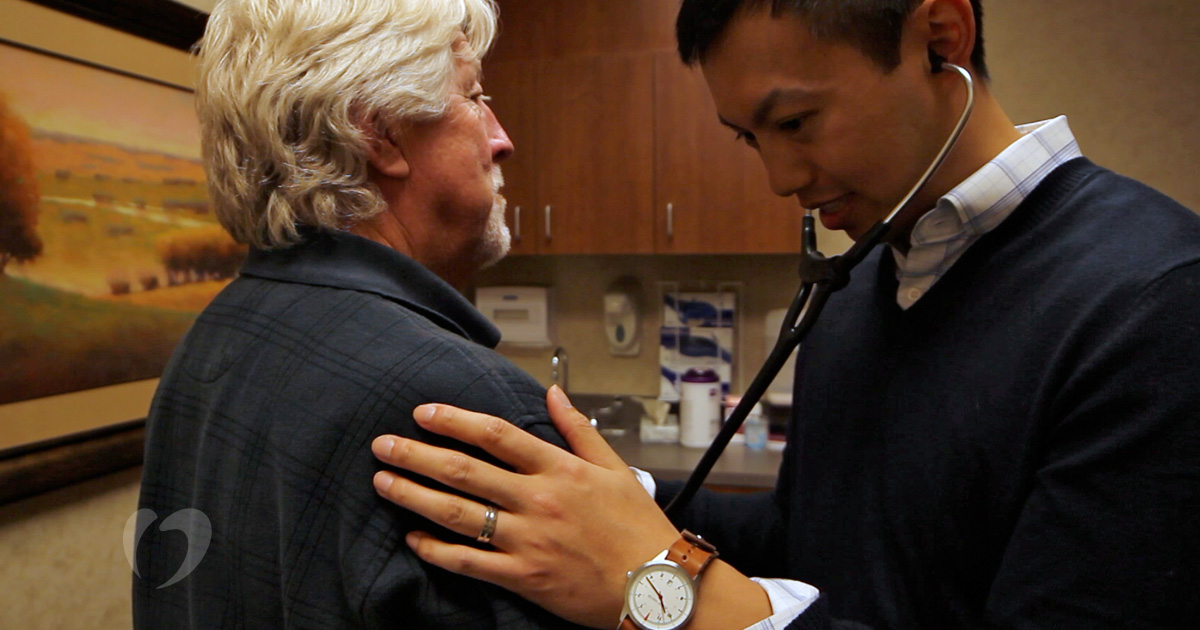What is atrial fibrillation and who is at risk?

Atrial fibrillation (AF) is a type of irregular heart rhythm often seen in the aging population. Symptoms of atrial fibrillation, commonly known as “AFib,” include heart palpitations, shortness of breath, fatigue, light headedness, dizziness, and sometimes passing out. AF impacts a person’s overall daily life because they don’t feel their best and often lack energy to do regular activities. While AF on its own is not generally a life threatening condition, it puts patients at a greater risk for stroke.
During AF, the upper chambers of the heart (called the atria) do not beat regularly and thus do not efficiently move blood out of the heart. As blood pools in the heart, the risk of blood clots increases, and any clots that form can potentially travel to the brain and cause a stroke.
People most at risk for AF include individuals with a family history of AF, an aging population, and individuals with medical conditions such as obstructive sleep apnea, diabetes, hypertension, obesity, or vascular disease.
When patients have symptoms of AF, the physician will use an electrocardiogram (ECG) to analyze the heart rhythm during an office visit. The doctor may also send a patient home with a heart monitor to gather additional information about how often AF occurs and how long the irregular rhythm lasts. There are two primary types of AF — paroxysmal AF, where the irregular rhythm may stop and the heart returns to normal rhythm on its own, and persistent AF, where the heart stays in the irregular rhythm unless treated.
Overall, AF is a very treatable condition. Either type of AF includes an increased risk of stroke, which means many patients with AF will be prescribed a blood thinner to reduce that risk. Other treatment options for atrial fibrillation include cardioversion to try and return the heart to regular rhythm, antiarrhythmic drugs to help the heart stay in normal rhythm, or a catheter ablation to treat the irregular rhythm.
Contact the Oklahoma Heart Hospital today to learn more about atrial fibrillation and the treatment options available.
